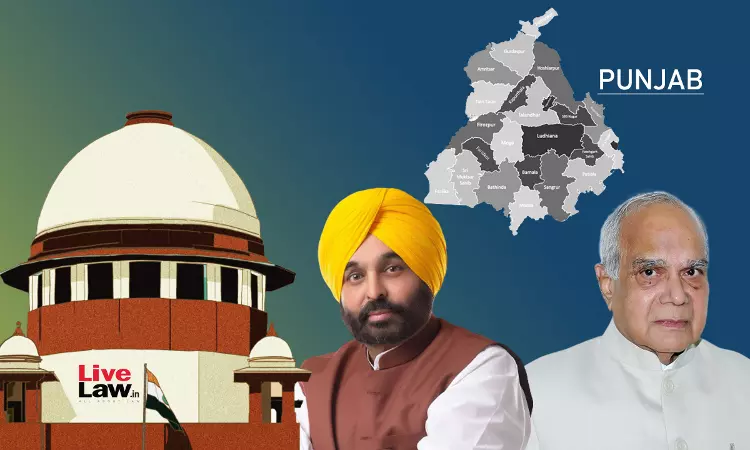
Image Source: livelaw
Introduction
In a landmark decision, the Supreme Court of India has recently ruled on a crucial matter concerning the authority of governors to block re-passed bills. This ruling holds significant importance in the constitutional and legislative realms, impacting the relationship between the executive and legislative branches of the government.
Background
The issue stemmed from the governor's exercise of power in rejecting certain bills passed by state legislatures and subsequently blocking their re-passage. This action sparked a debate over the extent of gubernatorial authority and its alignment with constitutional provisions.
Legal Proceedings
The case was brought before the Supreme Court following several instances where governors refused to assent to bills that were re-passed by state legislatures, citing various reasons including procedural irregularities or policy disagreements.
The legal battle revolved around interpreting the constitutional boundaries of a governor's authority to refuse assent to bills, especially when they were re-introduced and passed by the legislative assembly.
Supreme Court's Decision
After extensive deliberation and considering past precedents, the Supreme Court delivered a decisive judgment. The Court ruled that a governor's power to block a re-passed bill is limited and cannot be exercised arbitrarily. It was emphasized that the governor should act within the boundaries set by the Constitution and not impede the legislative process unduly.
The judgment highlighted that the governor's role in the legislative process is not absolute and should be exercised in accordance with the principles of constitutional democracy. The Court underscored the importance of upholding the supremacy of the legislature while respecting the governor's role as a constitutional authority.
Impact and Implications
This ruling has far-reaching implications for the functioning of state governments and the interplay between the executive and legislative branches. It reinforces the principle of check and balance and emphasizes the need for a harmonious relationship between these branches for effective governance.
Conclusion
The Supreme Court's verdict sets a significant precedent, delineating the boundaries of gubernatorial authority in the legislative process. It reaffirms the constitutional principles of democratic governance and the separation of powers, marking a crucial milestone in India's legal and political landscape.
Such landmark judgments have a profound impact on the country's governance structure, reinforcing the rule of law and upholding the foundational principles enshrined in the Indian Constitution.